
There were some nice tributes to Milos Forman in the media this week following his death at age 86.
But also some glaring omissions…
Obviously, One Flew Over The Cuckoo’s Nest got top billing in every obituary. And deservedly so. An instant classic in 1975 (winning all top 5 Oscars that year), it has only grown in reputation ever since. I don’t think I have ever read a negative review of the film, never heard anyone even say they didn’t like it – how rare is that? It is an iconic moment in pop culture, occupying that unique space where art and entertainment overlap. It is Forman’s masterpiece.
Second billing went to Amadeus – which makes sense, of course, as it also won Best Picture in 1984. Beautifully made, it was never really a favorite of mine – but that may have been my own immaturity at the time it came out. I am inspired now to rewatch it, see if the themes of jealousy and bitter mediocrity resonate more with me today (ahem). I do remember how Forman managed to infuse the “classical” piece with his usual shaggy humanity. Who else would dare cast Tom Hulce of Animal House as Mozart? Or Jeffrey Jones as an Emperor? Hell, who else would have even cast Americans?? But I think he loved pricking pomposity that way, cutting through any type of snobbery. And as a proud immigrant, all his US films are unabashedly American.
The third title mentioned, The People Vs. Larry Flynt from 1996, certainly fits that bill and was a solid enough work, but seems to be included only because it was his most recent box-office success (a modest one) and more identifiable to a younger audience.
It all made for a pretty half-assed summary of his career.
What they so blithely left out were…
TWO of his most accomplished US films, his very best Czechoslovakian film, and a “lost” title that begs for reassessment.
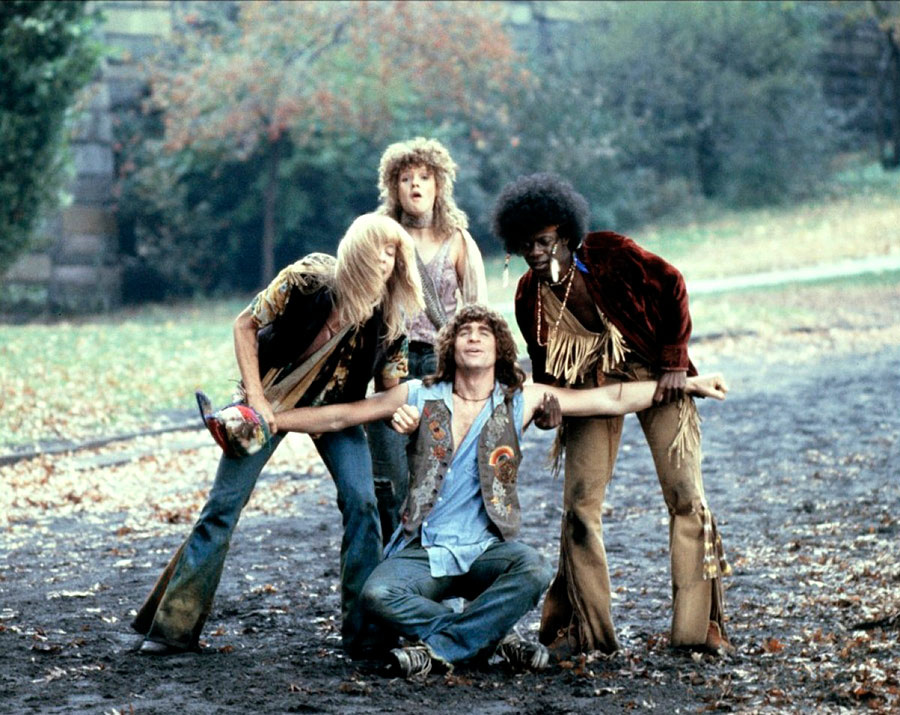
Hair (1979) is quite simply one of the greatest adaptations of a musical ever put on film. That’s not opinion, it’s a fact. The only reason it’s not celebrated as such really comes down to bad timing. Released in ’79, I’m afraid it was both a decade too late and ten years too early. America was on the brink of the Reagan era, making a hard right-turn toward conservativism, and not (yet) feeling any nostalgia for its Hippie years. Even though that specific perspective is the reason the movie hasn’t dated at all – a period piece, especially one that winks at the absurdities of said period, never really ages – it also meant memories of protest and political division were still very fresh in the public’s mind. This made the material much less “safe” than, for example, Grease, which was a colorful ’50’s cartoon with two big stars attached. At least, that’s the theory. It’s still not a good excuse if you ask me. Because I loved it, the critics loved it (see: poster below), and just like Cuckoo’s Nest, I have never met anyone who didn’t at least like it a lot. But once audiences stayed away, for whatever reason, the critics folded like a cheap tent – withdrew all their praise and dismissed it as a “flop”. That dreaded label triggered a kind of lazy groupthink from then on and the film never regained its rightful place in film history.
On my grudge list of criminally underrated films, Hair is the one I find the most baffling and depressing.
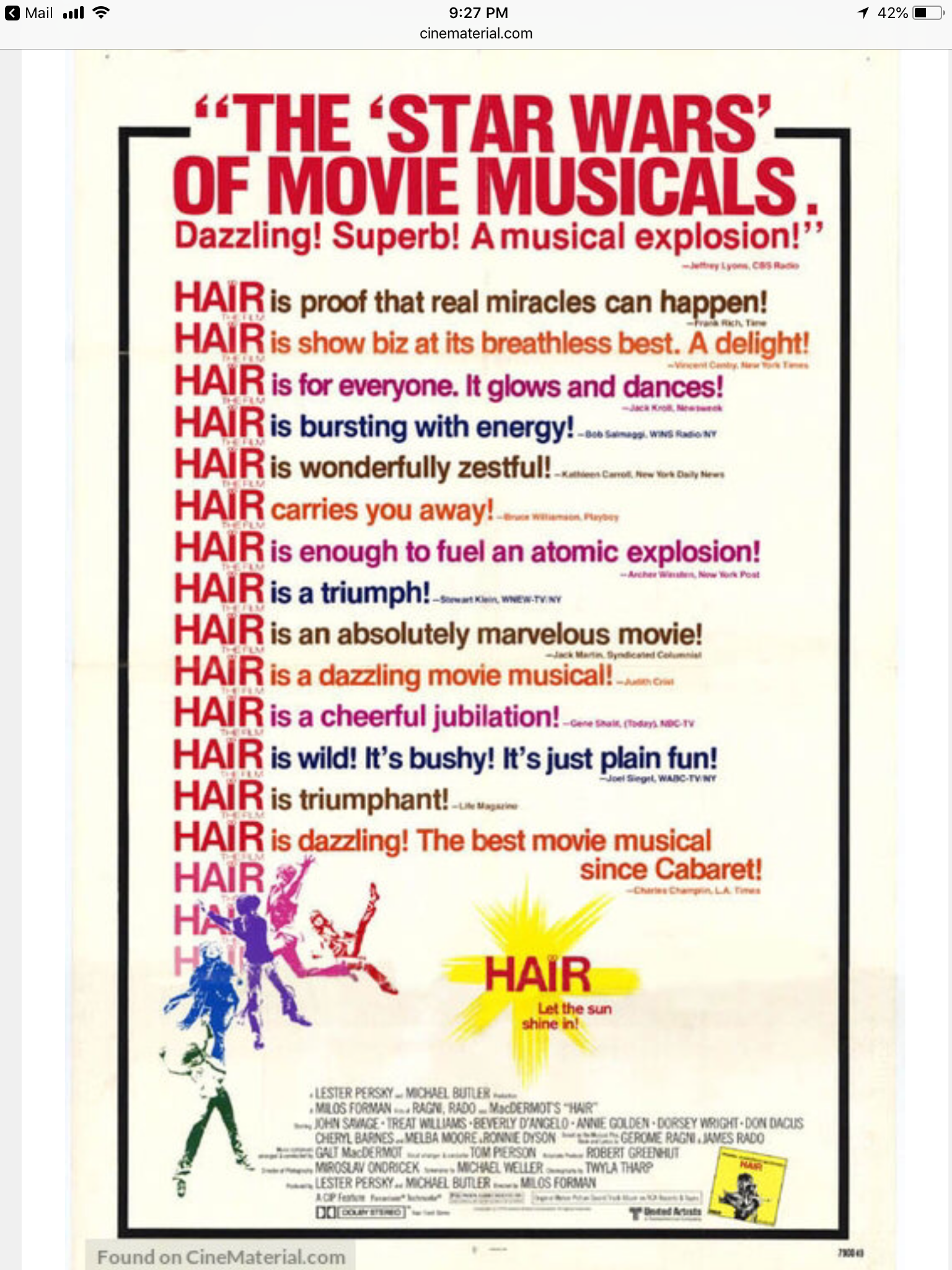
If you have never seen this glorious film: Rent it, buy it, stream it, find the biggest screen you can, turn out the lights, turn up the volume and ENJOY!
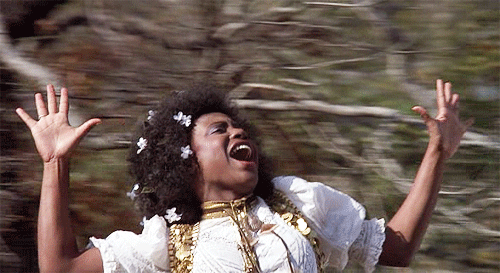
It should be added that along with Forman’s dynamic direction and a perfect cast, Michael Weller’s script is brilliant. He takes what was a formless mess on stage and shapes it into a potent emotional statement on the Vietnam war.
Weller also wrote the other overlooked film in Forman’s resume from that period, Ragtime (1981). Based on E.L Doctorow’s bestseller, the movie was considered a bit of a letdown at the time by readers of the book because it didn’t (couldn’t) include many of the novel’s multiple plot threads. It was judged more on what hadn’t made it into the film. But now, decades later, what is on screen looks damn good. It’s a grand tapestry of human folly at the start of “America’s Century” – zeroing in most powerfully on the story of Coalhouse Walker (Howard E. Rollins, Jr), a black ragtime pianist, who suffers a small but vile act of racism that ultimately leads to the loss of his wife and child and transforms him into a revolutionary. A story that sadly feels relevant again today.
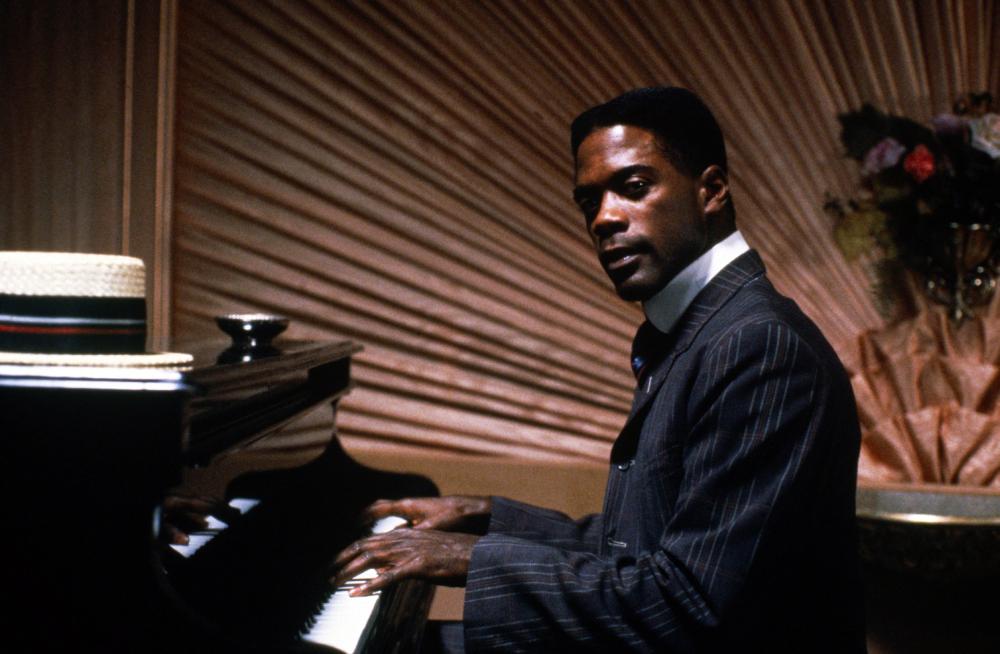
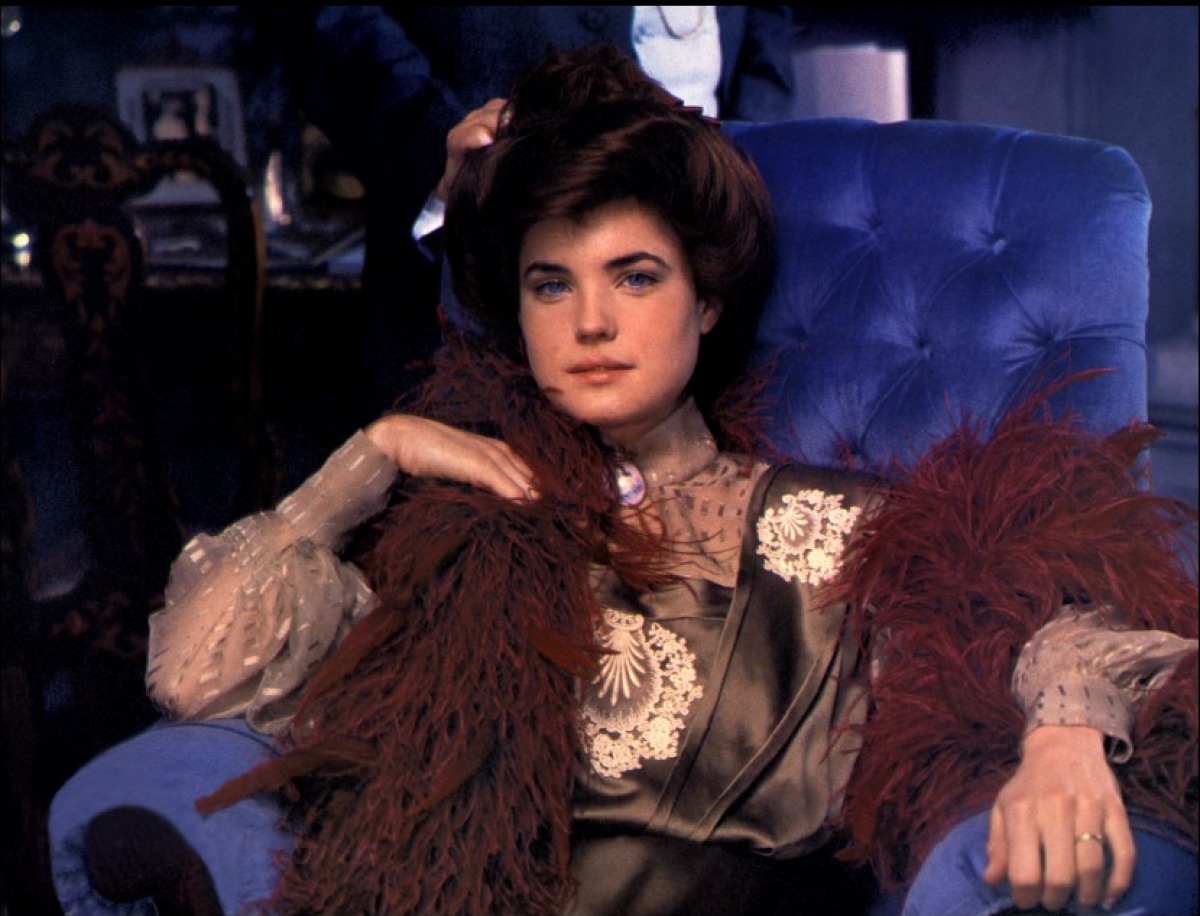
Again, it’s hard to believe such a high-quality film was given such shoddy treatment at the moment of its release.
I can only guess it left Forman feeling a little confused himself.
Maybe I’m making too big of a deal out of this, but I honestly wonder if the capriciousness of the critical reception to these two films and the subsequent slavish praise for Amadeus were at least partly responsible for Forman’s more sparse output in his later years. Did it make him more reluctant to commit to projects? Doubt his creative instincts? See it all as too much of a gamble? I don’t know the answer. But I think most film fans would agree with my wish that he had produced more work than he did.
With a talent like his, you get greedy.
The Czech film I referred to is Loves Of A Blonde (1965), a sly comedy about a girl who pursues a young man after their one-night stand together. Like a lot of films made under communist rule, by ignoring politics and just concentrating on relationships, it makes love feel subversive. Though shot in austere black-and-white, it radiates Forman’s trademark wit and warmth.


And the film most in need of reassessment?
His version of “Les Liaisons Dangereuses”, Valmont (1989), which, in another case of awful timing, came out the year after the enormous success of Stephen Frears’ Dangerous Liaisons. Most critics drew unfavorable comparisons and wrote it off as softer and less edgy than the melodramatic Glenn Close/John Malkovich pairing. But another way of looking at it would be that Forman’s rendering was more human and blackly comic, more genuinely sexy and more compassionate. It has a glowing early performance by Annette Bening (as well as Meg Tilly and Fairuza Balk, quite the trio of babes), and a more convincing lothario in Colin Firth. Like Amadeus, it’s been a while since I’ve watched it, but I own the DVD and plan to soon. My memory is it’s only real shortcoming was a somewhat abrupt and anti-climactic ending.
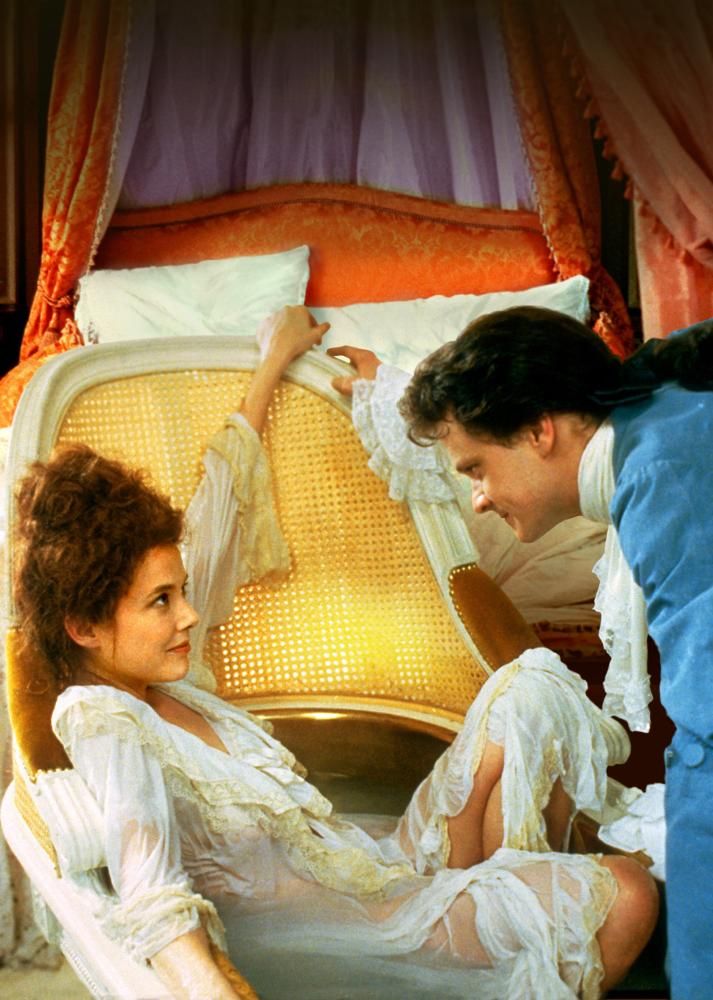
The bottom line is even the most flawed Milos Forman film is worth your time. I keep using the word “human” – that was his gift: collecting all these recognizable human moments and telling stories that honor our sloppy, imperfect lives.
It irked me then that, even in death, some of his best work was being dismissed by people who have probably never even seen it.
But to err is human…
Thank god film is forever and always there to be rediscovered.
So long, Milos. Thanks for all of it.

